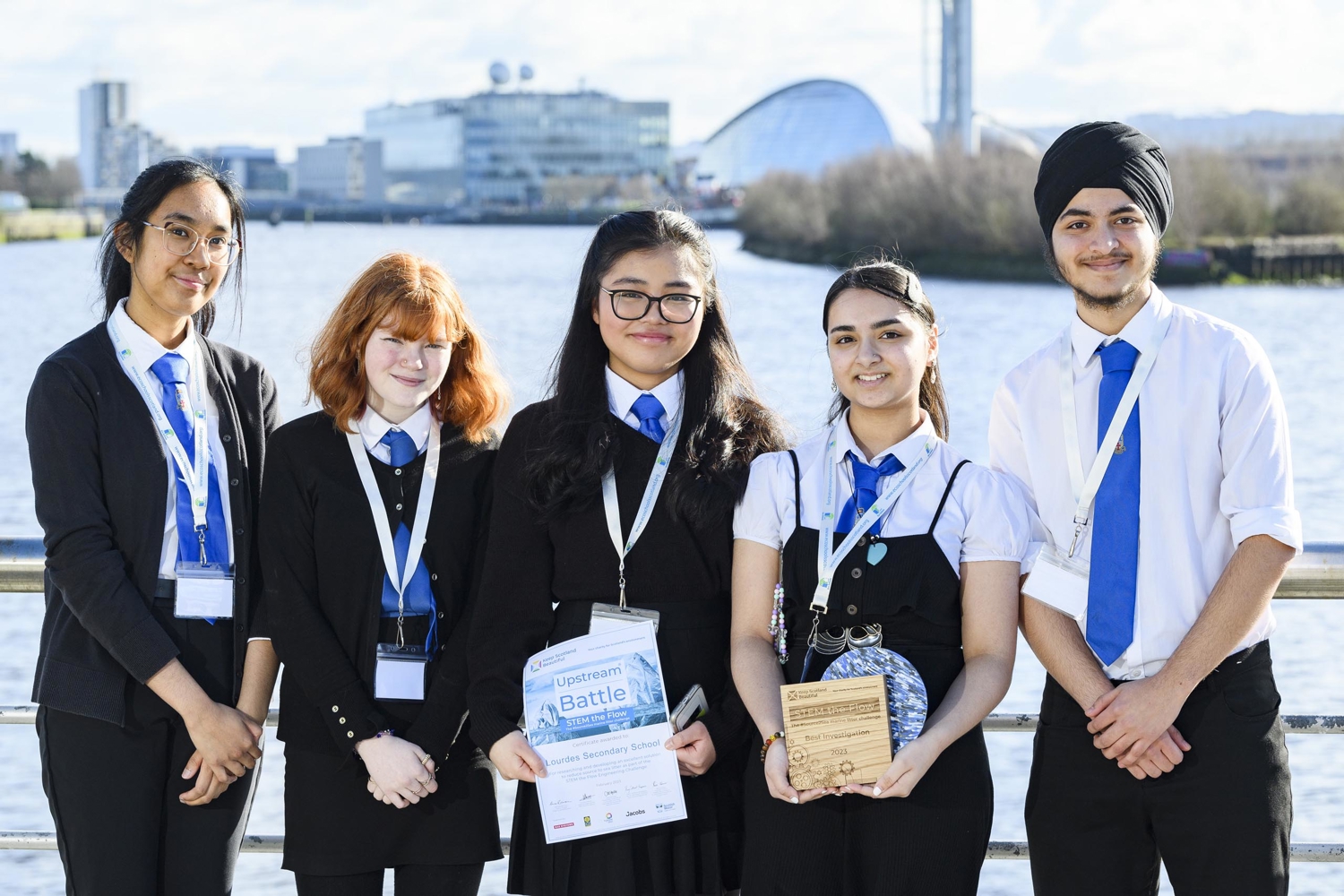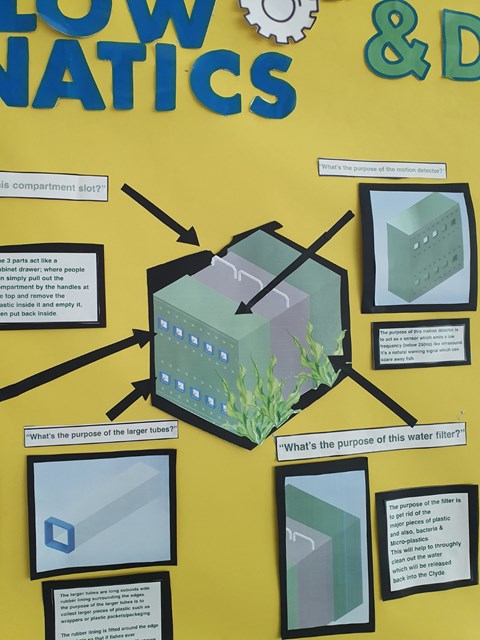Lourdes Secondary School
Winner: Best Investigation 2023

The Flow Fanatics, from Lourdes Secondary School hope to help clean up rivers and oceans, in particular the River Clyde.
They created a net-like design which stops plastic from moving from the Clyde to the ocean and also ensures that fish can be safely directed away from their concept.
When beginning the project, gathering ideas was the first action the pupils took as a team. Enabling them to have something to work from as well as gaining input from each team member and giving everyone the opportunity to be heard.
The team regularly had meetings in person during lunch times, as well as discussing thoughts on a group chat. They also discussed their model with several of the staff at the school to help construct the model.
As a team, pupils decided they we would implement seaweed and kelp as a natural filter. Using these resources would help provide shelter for organisms and filter the water of unwanted toxins. This natural filter is both economically and environmentally friendly.
Even though their main purpose was to tackle plastic, the group also considered the safety of the marine life. They discovered that fish are killed due to asphyxiation on filters so in their design they wanted to add something to act as a harmless repellent towards fish. Their design emits a low frequency whenever a fish gets near to prevent them from getting hurt.
The Flow Fanatics filter aims to pull in pieces of plastic floating in the river in two ways: water flowing through the larger tubes takes in larger pieces of plastic such as wrappers and plastic bottles, and the smaller tubes are made for taking in smaller pieces of plastic and microplastics.
As the plastic tunnels through the tube and reaches the end part, it is trapped in the removable part of the filter which can be emptied.
Seaweed and kelp around the filter has been added to act as an additional natural filter.
The group proposed to make their filter from recycled plastic as much as possible in order to make use of it for a better purpose, instead of having it piled around the river or landfill.
From the beginning, The Flow Fanatics were already aware of the current state that the River Clyde was in, but after spending a lot of time on their STEM the Flow project and learning extra information about the relationship between plastic and the River Clyde, they concluded that River Clyde was more polluted than they had first thought and also that plastic a major and severe issue that needs a clear solution.

We really hope that our design and its method will be useful and successful. We think that the functions of our idea can somewhat be helpful with finding a solution to extract plastic from not just the River Clyde, but also within other rivers and lakes



